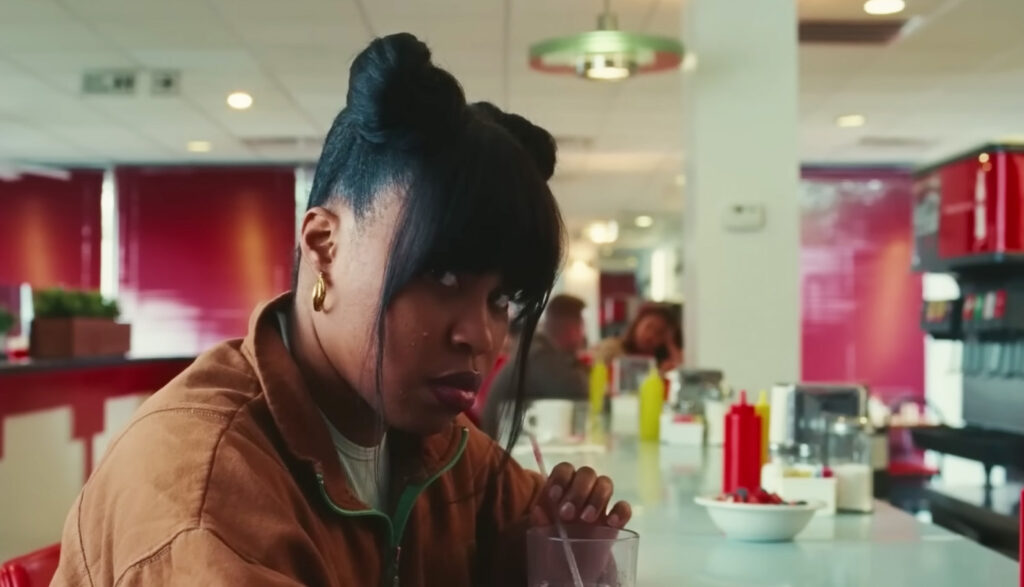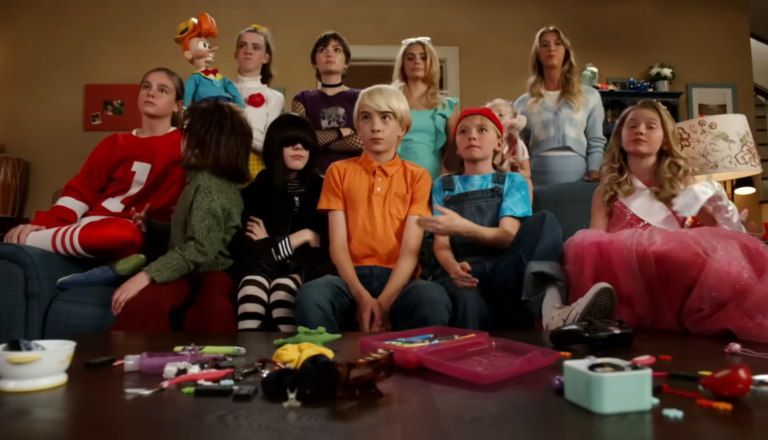
Fallout
A faithful rendition of the popular videogame, Prime Video’s Fallout is also just as bloody and problematic, too.

The word “fan” feels pretty mild these days. I’d call myself a fan of a handful of sports teams, a smattering of television shows and maybe even a burger joint or two.
But sometimes, we’re reminded that the word is just short for “fanatic,” and that can feel pretty appropriate, too. Every week, you might read or hear about someone who took their fandom a little too far: Riots at soccer stadiums, stalkers in the houses of stars.
And then there’s Dre.
Andrea “Dre” Greene loves pop star Ni’jah. And when I say “loves,” that’s a significant understatement.
Dre glories in every new song. She follows the star’s personal life with all the focus of a cold-case cop. She’s dead broke, but that doesn’t stop Dre from applying for a new credit card and slapping down $3,600 for a pair of Ni’jah concert tickets.
When someone dares to tell Dre that underneath all of Ni’jah’s wealth and fame and talent, she’s like everybody else, Dre is aghast.
“She’s not like everybody else,” she says. “She knows what we’re thinking and she gives it her name. She’s a goddess.”
Dre’s determined to someday meet her idol. Her sister, Marissa, tells her that “If there’s anyone crazy enough to meet Ni’jah Hutton, it’s you.”
And again, crazy just might be an understatement.
Dre is crazy—crazy enough to kill under certain circumstances. And she does so in Swarm. The series (which takes its name from the word Ni’jah fans refer to themselves as) follows Dre on a blood-choked road trip that shows us all the facets of the character at its core. Played by Dominique Fishback, Dre can be deeply relatable or horrifically psychopathic; strangely insightful and embarrassingly immature.
The show (co-created by actor, rapper and Atlanta mastermind Donald Glover) is equally multidimensional and, in its own way, unhinged—comic, tragic and truly horrifying, sometimes in the same breath. (In the opening episode, for instance, after she crushes someone’s head, a gasping Dre reaches into the victim’s fridge and eats bloody handfuls of pie.) A thinly veiled take on Beyonce and her notoriously rabid fans (known as the Bey Hive), Swarm bounces all over the dramatic map—not always knowing where it’s going, but always in a hurry to get there.
Indeed, the show offers only one real consistency: Its problematic content.
Sex and nudity seem to be a regular feature in Swarm. Violence—bloody, gory, deeply disturbing violence—runs like a train through the series. And the language is as harsh as it can be.
Swarm is a very different sort of show. Some critics love it. Some don’t. But they all agree it’s quite … something.
In terms of its content, however, it is, very simply, something awful.
We’re introduced to Dre, her life and her extraordinarily extreme sense of fandom.
She lives with her sister, Marissa, an aspiring makeup artist who’s dating a guy named Khalid. But when Dre’s filling in for Marissa at a mall kiosk, Khalid comes by, lures Dre away from the kiosk and makes a pass at her. When Dre returns to the kiosk, it’s been robbed and vandalized—likely spelling the end of Marissa’s employment. Things quickly spiral down from there.
Dre—and we—see Marissa and Khalid having sex, and Khalid leers at Dre as he continues his motions. No critical body parts are shown, but it’s as graphic an encounter as I’ve seen on TV. Dre has her own one-night encounter with someone: We see her partner’s genitals mashed up against a bowl of strawberries. (We see much of the rest of him, too.) One of Dre’s dresses reveals her breast. Several women wear tight, revealing outfits. Khalid makes several lurid and suggestive remarks to Dre, telling her “You don’t got to be no virgin forever if you don’t want to.” (When Dre tells Marissa of Khalid’s advances, Marissa refuses to believe her. But later Marissa learns that Khalid cheated on her with someone else.) We hear a bit about Ni’jah’s love life. A T-shirt depicts a sexual act. There’s a reference to banana-flavored condoms.
Dre kills someone with what looks to be a rock or statue-like knick-knack: We see the first blow, but the lethal follow-ups are shielded from the camera by a kitchen counter. We do see Dre’s bloodstained hands, face and clothes as she wheeze-screams in horror over what she’s done. She grabs a fistful of pie from the fridge and stuffs it into her mouth, and her horror seems renewed when she realizes that she’s stuffing the victim’s blood in her mouth, too.
Dre clenches a piece of glass in her fist, and blood oozes from the gaps between her fingers. Someone commits suicide, and the lifeless body is shown. Someone bears a scar on her wrist from a previous suicide attempt. We see a church-based funeral, and we learn that someone didn’t attend out of fear of seeing a dead body.
Khalid drinks beer and offers one to Dre. Dre tells him that she doesn’t drink. But she does share a marijuana joint with her sister (complaining that she doesn’t like how it affects her). When Dre’s late for a job because of the weed, Marissa says it’s no excuse: “It’s not like I gave you meth,” Marissa says.
We hear 21 uses of the f-word, nearly a dozen s-words and loads of other profanities (including “a–,” “d–n,” “h—” and “n–ger.” God’s name is misused four times, three of which include the word “d–n.”


Paul Asay has been part of the Plugged In staff since 2007, watching and reviewing roughly 15 quintillion movies and television shows. He’s written for a number of other publications, too, including Time, The Washington Post and Christianity Today. The author of several books, Paul loves to find spirituality in unexpected places, including popular entertainment, and he loves all things superhero. His vices include James Bond films, Mountain Dew and terrible B-grade movies. He’s married, has two children and a neurotic dog, runs marathons on occasion and hopes to someday own his own tuxedo. Feel free to follow him on Twitter @AsayPaul.

A faithful rendition of the popular videogame, Prime Video’s Fallout is also just as bloody and problematic, too.

Death Note explores religion, morality and justice as its main character seeks to become the “god of a new world.”

The Really Loud House takes all the positives and negatives of its predecessor and turns them live action.

The mutants are back in Disney’s retro iteration of the X-Men—as are the violence and superhuman abilities that typically accompany this franchise.